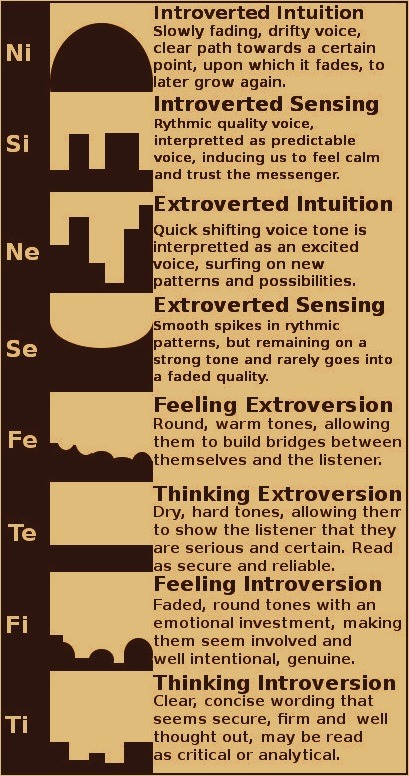Text
Thank you again for this response! 🤩
Even with how I said I wanted the exchange to be ‘equal’, I did purposefully imply how I preferred getting the ‘upperhand’ during emotional exchanges. ‘Nice’ is the most common adjective I had attached to me and it’s not necessarily a good one. I’ve been called out many times for being ‘too/unnecessarily nice’, which I am sure is an Fe thing.
So I’m glad that you addressed this and correlated it to having a 2-core fix. :D That is what I was thinking, but I wasn’t sure if it was 2 or 1 because I tend to confuse the two. I like taking enneagram into consideration along with MBTI because I sometimes recognize that there are traits more attributed towards a core-trait rather than cognitive function.
Hi hi! [Proceeds to wave hand wildly in virtual classroom] I have a question teacher. Okie so, the whole 'not opening up to others because I don't want to burden them' thing. I get that that is a high-Fe trait.
But for me--and I know this will sound terrible--it's not just burdening the other person, but also burdening me as well because now I feel indebted to them for opening up to them.
For me, emotional moments are like transactions and I don't want either of us to come out with extra change. For example, if I open up to my therapist about deeply personal things, that's all good because I'm paying them and they can have personal satisfaction from having done their job.
However, if I open up to a friend of mine about a break up I had recently, then I'll pay $40 for both of our lunches as a thank you for listening to me and I'll make sure to listen to anything she would like to talk about.
Can this be an Fe or even Fi thing? I also don't think this is a healthy trait, so could it be an extreme of either cognitive function? Or maybe even more of an enneagram thing...
Sounds like Fe being over-scrupulous about not burdening others and making sure you give back as much as you 'take.' It's very nice of you, but... not necessary. Part of human communication / give and take / friendships is being there for people when they need you, and them being there when you need them, and you don't strictly need to keep a tally in your mind about who owes who support. It might be a social over-focus (I can't impose, and I have to make sure to give back a lot) of trying too hard, maybe?
#enneagram 2#2 core#so it's funny#i have gotten 7 or 9 cores repeatedly#both on self-reports and testing services#but never a 2 core for some reason#even though i def do see 2 traits in myself#anyways thank you again charitysplace ^^
22 notes
·
View notes
Text

Hi hi! [Proceeds to wave hand wildly in virtual classroom] I have a question teacher. Okie so, the whole 'not opening up to others because I don't want to burden them' thing. I get that that is a high-Fe trait.
But for me--and I know this will sound terrible--it's not just burdening the other person, but also burdening me as well because now I feel indebted to them for opening up to them.
For me, emotional moments are like transactions and I don't want either of us to come out with extra change. For example, if I open up to my therapist about deeply personal things, that's all good because I'm paying them and they can have personal satisfaction from having done their job.
However, if I open up to a friend of mine about a break up I had recently, then I'll pay $40 for both of our lunches as a thank you for listening to me and I'll make sure to listen to anything she would like to talk about.
Can this be an Fe or even Fi thing? I also don't think this is a healthy trait, so could it be an extreme of either cognitive function? Or maybe even more of an enneagram thing...
Sounds like Fe being over-scrupulous about not burdening others and making sure you give back as much as you 'take.' It's very nice of you, but... not necessary. Part of human communication / give and take / friendships is being there for people when they need you, and them being there when you need them, and you don't strictly need to keep a tally in your mind about who owes who support. It might be a social over-focus (I can't impose, and I have to make sure to give back a lot) of trying too hard, maybe?
#Fe#extraverted feeling#social instinct#so#ooh tank yew for your insight on this#it helps because having more knowledgeable insight#on cognitive functions--as in your insights--really help#i know that i don't have healthy habits#i definitely don't want anyone to follow my method#it's a habit i working on changing xD
22 notes
·
View notes
Text
I saw something that paired INTJs with ENFPs, and said that it was a really good pairing. Apparently, a lot of people agree with this and I was wondering why. After all, I know an ENFP in real life, and I can be around her for about 2 hours before having to leave because if I don’t, I will say something I will regret later, or punch her. I don’t know if it’s just me, or the ENFP I know, but I’m wondering why do many people think this pairing is good. Also, I’m wondering if the different personalities and what friends they have correlate. I know that I have this one ‘friend’ that gets on my ever lasting nerve, and when I rant to one friend who has a similar type as me, she understands why I’m so frustrated. Then, I can rant nearly the same rant to another friend, who has nearly the opposite type as me, and close to the same type as the person I’m ranting about, and she sees nothing wrong with how the person is behaving. Once again, is this just a person to person thing, or do our personalities play a role in this?
It works on a theoretical level, because they share a judging function axis (no Fe/Fi misunderstandings, but a need to be alone with my own feelings + Te rationality) and a focus on abstractions and ideas, but how compatible people are in real life has to do with their health and maturity levels more than their personalities. You should also avoid, if you can, judging a whole type based on your interactions with one person of that type, since they may be a distinct case.
I’ve known a handful of INJs and we often clash on the singularity of their viewpoint compared to my desire to explore all the options, but whether we get along otherwise has depended more on who we are as people separate from our types (how mature, willing to listen to each other, and understanding we are of each other’s personalities) than our cognitive differences.
#intj#enfp#o;sjgo;ersjgoi;sejg#again great advice thank you so much for this response#cognitive stack doesn't actually equal individual personality#it's like gene vs gene expression#the information is there#but whether the information will be presented and utilized#is up to the body and the environment's effects on the body#(oh hey can shadow functions be similar to recessive genes or smthg)#or legos#each set has its own group of legos#and it is meant to be built a certain way#but that doesn't mean it will be built that way every single time#oh oh or a recipe#you can have specific ingredients#and use those same ingredients to make two or more different dishes#im so tired#i need sleep#poopsie is pooped
15 notes
·
View notes
Note
In your opinion, how do you imagine an INTP would embrace the romantic side of themselves, especially since feelings can be awkward for them?
ITPs sometimes explore what romance "is" through "safe" mediums such as romance novels, romantic movies, or writing romance, although how they do so is often based more in Ne/Se than in actual deep awareness of emotional dynamics. They want to find out how things work and studying them objectively can help them understand them on a conceptual level, more than them just... falling in love. That happens and it's strange and wonderful and a little disarming for them, because they may not be sure of their feelings or know what to do with them, and are awkward at social gestures of a romantic nature. They are quite sensitive to potential rejection, because their inferior Fe in a romantic situation is so vulnerable. So they can sometimes overdo "grand gestures," because they don't know how much is too much.
I mean, you could look at Pierre in War & Peace as a good example -- he becomes besotted in love and isn't completely sure of what to do with his feelings. It takes him a long time to come to terms with his true feelings for Natasha and mature into them, and compare them to his shallow sexual attraction to his first wife, so that he knows the difference between a lasting emotion and a fleeting one.
#INTP#ISTP#Introverted Thinking#inferior fe#my ex was most likely an intp#this...actually sounds like him xD#i love intps#i really admire their introverted thinking
65 notes
·
View notes
Text
Most insecure Tri type?
469. They drown in their doubts and insecurities.
#enneagram#tritype#469#oh god the more i think about it#the more it sounds like a nightmare to be this type
20 notes
·
View notes
Note
Do u have any good tips for differentiating auxiliary Ne and inferior Ne?
Ne/Si trusts their hunches without proof and will discuss theories for their own sake (theories are interesting for me to ponder).
Si/Ne trusts proof before hunches and won't discuss theories for their own sake (theories need to "go somewhere" or have a use).
#auxiliary ne#inferior ne#ne si axis#si ne axis#...lol without proof#i drive my si/ne mom crazy#with my hunch-driven thinking#or i guess idea-driven
34 notes
·
View notes
Note
this is less of a serious question and more just random so feel free to ignore - do you ever notice patterns in which fictional characters you tend to like/dislike? personally i can rarely stand isfjs (which is. probably unsurprising as a (probable?) entp dsjfkl)
My patterns of dislike aren't type related; they're tied to how selfish or unkind the character is to the people around them and whether I deem that behavior inappropriate. (EG, Don Draper, Klaus Mikaelson, and a litany of "I do what I want, even if it hurts you" Fi users).
#introverted feeling#introverted sensing#extraverted intuition#o;rjgoiersjg;oirg#okay first off gr9 answer to this ask#like seriously don't judge someone by their mbti#don't use mbti as hogwarts house you can discriminate against#we have enough of that in real life...#...and in harry potter actually#oh god i just got a text reminding me that#i haven't paid my nursing license yet#and i dont feel like paying the 50usd rn#hahah#poopsie what are you doing scolding ppl#you can barely be a functional adult#actually wait no i stand by my scolding
13 notes
·
View notes
Text
Can Fi have delayed reactions?
Hello again! I’m curious about your recent Fi posts in regard to Fi not knowing how they feel about something until they’re in the middle of it.
Is it also Fi to have a kind of “delayed” reaction after things have happened?
I think I’m IFP (leaning to INFP because I see far more Si traits in myself than Se) and a lot of the time I know how I will feel before something happens (I have the typical DO NOT WANT or DO WANT reaction and sometimes reject things before even trying them). But when it comes to emotional situations I often don’t know how I feel until hours have passed.
For example, this past weekend someone said something passive aggressive to me. I heard it, understood it on an intellectual level, felt puzzled and a bit disappointed, and only much later began to feel truly hurt about it.
That’s fairly normal for a Fi user. Fi’s process their feelings alone, once they’ve had time to look inward, reflect, and really think about how they feel as a result of whatever happened. They aren’t able to process things in the moment like Fe types (or put them into words quickly) and as a result, they may delay thinking about it until they have time to really sink into it and ask themselves how they feel (do I feel hurt? what is this sensation? do I really not care?).
If it helps, as a 9 (952 or 962) I’m very controlling of my emotions and often intellectualize them instead of actually feeling them.
# Same. :P
I used to worry about this, now I’ve simply accepted it. :P I float in a state of non-emotion much of the time with occasional forays into NOPE. NOPE. NOPE.
#reference#introverted feeling#holy shit holy shit holy shit holy shit#this is#this is an fi thing?????#really??#omg#this#ahhhhhslehgluesgerhghguiehg#thank you for this post!!!
43 notes
·
View notes
Text
How can I tell if someone is ESFJ with high Ne or ENFP? Why does auxiliary Fi look so much like Fe?
It really doesn’t. Fi is very me-centric and self-referencing (how does this relate back to me? why should I care? what do I value? why should I pretend to feel something I don’t just to make you more comfortable? I’ll just be quiet instead. How would I feel if that happened to me? I can’t relate, so I find that ridiculous). As a Fe-dom, you’re going to rub up against that and be annoyed by it. And you won’t understand or appreciate their tert-Te decisions and reasoning (abrupt, tactless, straightforward, provable logic) because it will seem ‘bulldozer’ to you.
ENFPs are interested in the psychology of people, and are somewhat detached from them and prone to seeing them for their potential rather than who they are, and ESFJs are interested in people and in being present for them in the moment. I’ve heard it said of an ENFP that “other people often assume the ENFP is more interested in them than they actually are” and to some extent, that is true, because the ENFP is curious about the other person’s potential – and that can wane quickly if they don’t sense anything to maintain an intellectual interest and/or that will stimulate their Ne over the long term.
ESFJs use Ne just to explore and play, but for an ENFP, it’s their way of life. Everything gets abstracted away from and considered from a purely abstract point of view. I’ve noticed this even in myself – I had a friend die recently and I thought less about her absence and the impact it had on her loved ones than an “unlived life” and all the things she would miss, and how sad it is that life goes on after people die, it doesn’t stop… nothing changes except for their absence, and most of us leave nothing substantial behind to be ‘remembered by,’ and that is a tragic thing. How many millions of people over the centuries we know nothing about, because despite their individual lives and meaning as people, history decided not to leave tribute to them because it deemed them not important enough or significant enough in their actions to be remembered. For every artist we praise and whose work goes into a museum, a thousand other artists faded into obscurity. It’s natural for a N’s mind to drift to implications, to inner meaning, to significance and the broader picture, rather than focusing on the myopic details. ESFJs don’t think this way, in fact, that would seem weird to them. Ne is for fantasizing and dreaming and thinking up creative ways to do things, it’s not the air they breathe.
#reference#enfp v esfj#introverted feeling#extraverted intuition#extraverted feeling#oh goodness again#great contrast and comparison post#though i do think this varies from person to person#as well as the context#i've been typed as an enfp or infp so#in general when i do think of death#i do focus more on the philosophical intake#rather than the practical one#but when my brother died earlier this year#i lamented more over the impact it had on the rest of my family#rather than the meaning of his death and the tragedy behind it#my emotional reaction was so lackluster#that my dad in particular said there was something wrong with me#so these are the times im like 'so...maybe im not a feeler?'#but i refuse to see thinkers as the types who are incapable of emotion#so there's that too xD
34 notes
·
View notes
Text
moral dilemmas for 16 types.
Q1.1: An infamously ambitious diplomat is angling for the governorship of a new Federation colony. He has political support, but his opponents claim he knows little of governing. The diplomat has asked me to make a speech on his behalf. Should I give a positive speech, give a neutral speech, or decline to speak for him at all?
a. Give a rousing speech in support of the diplomat.
b. Give a neutral speech to avoid sides.
c. Refuse to speak at the diplomat's gala.
Q1.2 (only if you didn't choose c. above): The diplomate-turned-governor of the Federation's newest colony has been arrested for stealing its resources to build his own estate. The resource shortages caused by his theft led to building collapses. As someone who knew him before he became governor, I've been asked to share my thoughts with the judges. Should I suggest a lenient sentence, or a harsh one?
a. Suggest a lenient sentence in the hopes of reform.
b. Suggest a harsh sentence in light of the consequences of his theft.
Q1.3 (only if you choose b. above): The former governor I helped sentence to a penal colony has escaped in a powerful starship. It seems that after his sentencing, he blamed his one-time colonists for his downfall. He is heading towards the colony with phasers armed, and the Enterprise is the closest Starfleet vessel that can respond. Should I disable his ship, or attempt to talk him down?
a. Disable his ship before he can harm the colony.
b. Talk him down before he or anyone else is hurt.
Q2 We found a Klingon colony in the middle of a revolt, with most of the population rebelling against what they consider to be a corrupt government. The High Council supports the colony's governor, though Chancellor Martok has expressed some disdain for his decisions. Should I stay out of this internal conflict, support the governor, or support the rebels?
a. Avoid taking sides in the rebellion.
b. Support the colony's governor.
c. Support the rebelling colonists.
Q3 When our spaceship stopped at an andorian outpost to take on supplies, everyone we met was angry with Spock. We later learned that another version of Spock had stolen from half the people on the outpost. Should we make reparations for this counterpart's behavior, or try to clear Spock's name?
a. Repay the outpost for what Spock's counterpart took.
b. Reassure the outpost's inhabitants that Spock means them no harm.
Q4 The Enterprise picked up a non-urgent distress call from inside the Romulan Neutral Zone. A Romulan interceptor claims to be having trouble maintaining a stable warp field. Should I cross the border to assist the Romulans, pass the message along to another Romulan ship, or ignore the distress call?
a. Cross the border and assist the Romulan interceptor.
b. Ensure that the distress call reaches another Romulan ship.
c. Ignore the distress call.
Q5 While attending a medical conference, McCoy overheard a rumor that a prestigious Bajoran researcher was planning to take credit for a Romulan doctor's work on gene therapies. He reportedly has more resources to develop such treatments, but the fact remains that he did not invent them.
a. Allow the researcher to claim the doctor's work.
b. Attempt to warn the Romulan doctor.
c. Another Romulan Physician is at the conference. Ask her to warn the doctor.
Q6 Data found an unusual substance while collecting water samples on a Class L planet. It is a viscous, acidic fluid, capable of movement, but we cannot determine whether it is sentient. Should I leave the substance on the planet, take a sample, or destroy it?
a. Leave the substance on the planet where it was found.
b. Take a sample back to the ship for further study.
c. Destroy the potentially dangerous substance.
Q6.1 (only if you choose b. above) The fluidic sample Data collected during one of our away missions escaped containment and is moving through our power transfer conduits. Phlox believes it may be searching for nutrients, but the longer it stays in those conduits, the closer it gets to our impulse engines. Should I attempt to draw the substance out or have teams dissolve it?
a. Lure the substance out without harming it.
b. Dissolve the substance before it reaches the impulse engines.
Q7 The Enterprise was asked to negotiate a dispute between a Ferengi mining company and local colonists. The Ferengi recently discovered a massive tritanium ore deposit in the same star system as a Vulcan colony. Should the mining rights go to the colonists who own this star system, or the Ferengi company who found the deposit?
a. Give the mining rights to the colonists, who own this star system.
b. Give the mining rights to the Ferengi company, who found the deposit.
* * * * * * * * *
OK! NOW; HOW TO RATE YOURSELF?
if you were having big trouble choosing sides, going for the neutral path most of the times, you are probably a high Fi user. (they need to know more about the situation. if they knew who certainly was the evil side they would definitely stand against that but they don't. so therefore.)
if you were easily choosing whatever option, you much probably have high Ti. (they will choose based on their own logical framework and without emotional involvement, without putting themselves in the shoes of others. remember, there's no vulcans and there's no romulans so chill.)
if you were able to choose sides easily but mostly choosing the nice option out, just helping people, being optimistic, trustful, that would mean Fe. for example a true high fe user would help that governor first but when they learn that governor was stealing they would punish him too. so everyone has at least one free pass.
if you were being lawful and professional and following protocols and serious and responsible and not taking unnecessary risks then that mostly mean Te. get shit done, don't compromise the mission, get real.
source: android game startrek timelines (extremely old)
#reference#moral dilemma#fi v ti v fe v te#introverted feeling#introverted thinking#extraverted feeling#extraverted thinking#YOOOOOOO#THIS IS SO COOL#THANK YOU FOR SHARING THIS#I vacillated between ti and fe for this one#which is interesting because im more likely to be a high fi user
24 notes
·
View notes
Text
how to tell if you have introverted thinking in the first or second slot.
how to tell if someone has high ti:
the person quickly finds logical flaws and points them out "ignoring ethics". because they are not like ahhh i like you so much, humanism and stuff, let's be friends and get along and not hurt each other, no. they are following your logic and comparing and contrasting what you said to their own knowledge.
they do not care if you are their mothers or sisters or whatever. when you are wrong then you are wrong and they will tell you "why" you are wrong. a detached way of evaluating things. detached from ethics.
for example, when my gf bake a cake and when i think there's something wrong with it i reaaaaally, reaaaally want to point that out, how it could be better with a little bit less sugar maybe. but i know that's the last thing she wants to hear after all that time she spent baking it so i just say nnnnoommmnomnomm can i have another please in a rather child-like manner (3rd slot fe) because hey, it's still a good cake.
but that instictual urge to suggest alternatives (ne) based on what's wrong or unbalanced or inconsistent (ti) is real.
genealogy questions, like twfp host eric (youtuber) asks has nothing to do with ti. parsing stuff is si, not ti. a high fi user also categorize things. they just does it on an ethical level and there's nothing ethically problematic about answering genealogy questions.
example genealogy question: who is your mother's uncle's wife's son?
how quickly will you be able to call the meaning of "your mom's father"
si answers that.
just need to call si semantics from memory.
#reference#high ti#oooh love this#fi v si vs ti#introverted feeling#introverted sensing#introverted thinking#this is a good analogy that helps differentiate between these three types of introversions#ni gets so much attention that the rest kinda fall by the wayside
29 notes
·
View notes
Text
Voice tone and cognitive functions

#reference#tone of voice#i have no clue how to utilize this#but it's very cool and gives me something to think about
13 notes
·
View notes
Text
Moral compass vs fi
So I wondered what is the difference between someone having a moral compass in the area of being against things that would hurt or demean other people as a Fe user vs a fi user.
Fi: I wouldn’t want that to happen to me, so I’m against it.
Fe: That happening to anyone is morally wrong, so I disapprove.
Something interesting I’ve noticed about Fi lately is how it doesn’t know how it would feel until something is happening to them. This is why if you ask a Fi how they would feel if X happened, they have no real answer if they have no personal experience to relate it to in terms of “I’ve felt that way before.” There’s a line in Austenland from the INFP that is so profoundly true as regards Fi – “Oh. I didn’t know I would feel this way.” She assumed being fake-proposed to would be fine, and it happened and she hated it, so she walked away from it. That is incredibly true for every Fi I know, including myself. I don’t know how I am going to feel about something until I’m in a situation where it confronts me on an emotional level and directly involved me. Fe sources how others feel and relates it to themselves, so this doesn’t happen to them; they think / analyze (Ti) and rationalize an emotional expectation and adjust to it.
#reference#fe vs fi#ohhhhh this is great insight#i struggled with i vs e feeling#and this sums it up in a clear and concise way#thank you very much!
122 notes
·
View notes
Text
I apologize for derailing your post here, but goodness, I laughed so hard at the description you put for Carl Jung’s opinions for Fe and Fi. xD His misogyny is well known, so I find it ironic that his theories were furthered by women who gave it a more...well-rounded view, I suppose.
Socionics functions vs MBTI functions vs Jung
So I mentioned Socionics and MBTI functions are different. They both come from the same source, Jung’s cognitive functions, which are rather different, too. Here’s how.
Se

Jung: Perceives in a realistic, concrete way–concerned with facts but not with drawing logical conclusions from them. Strong aesthetic sensibility–even draws moral conclusions based on “aesthetic purity.”
MBTI: Perceives “here and now” or “with the 5 primary senses.” Pleasure seeking, loves novelty, loves beauty. Good in high-intensity situations. Needs freedom, individualistic, fun.
Socionics: Perceives in terms of “kinetic energy.” Knowing what levers to pull and buttons to push to get results. Seeing weak points. Powerful, willful, competitive. Associated with aesthetics but only for their power value–cool, fashionable, intimidating.
Si

Jung: Absolutely fucking epic mythological internal world, but barely any ability to communicate appropriately with the outside world. Would be a great artist but tragically rarely will.
MBTI: Boring. Staid. Your parents. Your boss. Conservative. Terrific memory. Responsible. Level headed. Needs structure. Dislikes change. Nostalgic and focused on the past. Really good at improving at something gradually over time (because muscle memory, etc).
Socionics: Relaxed, cozy, love beauty, strong aesthetic sensibility, good at organizing their environment to produce the best internal sensations for them, carefree, very adaptable and willing to adapt without requiring explanation, poor long term planners.
Fe

Jung: Women be crazy, don’t they?
MBTI: Social and popular, smooths things over, good at blending in/getting along. Focused on finding objective moral conclusions. Tries to find a solution that is best for everyone.
Socionics: Can read and create passions, excitement, liveliness, fun, moods, emotional states. Can calm things down but is more likely to shake them up. Gets emotionally invested, gets others emotionally invested. Dislikes secrets. Focused on the immediate social/emotional landscape rather than the relationships it may impact.
Fi

Jung: Women be crazy but in a different way, don’t they?
MBTI: Personal values, individual morality. Always knows what they believe and puts their own individual opinions over the group. May seem less feeling, “still waters run deep.” Skeptical of conventions and norms.
Socionics: Evaluates relationships and psychological distance. Sense of etiquette and propriety. Does not see a need to be very demonstrative with emotions. Principled and serious.
Te

Jung: The reason nobody takes my ideas seriously. Concerned with concrete facts, data, organization, goal setting.
MBTI: Wants to make the external world more rational, by creating and upholding objective standards. Impersonal, blunt, “to the point.” Might believe that facts don’t care about your feelings.
Socionics: Deals with how things work and how they could be made to work better. Has a need to gather factual information, might love research and books. Really disturbed by saying anything they know not to be factually true, so blunt, not socially graceful.
Ti

Jung: Subjective, uses deductive reasoning, wants to abstract a system to its most fundamental principles. When they have created an idea/structure, they’ll release it into the world like the most negligent parent, letting it sink or swim on its own. Jung was Ti (Ti-S or what potentially might be Ti-Se).
MBTI: Concerned with how things fit together logically and if they “make sense,” not whether they are factually true or false. Wants to understand the “essence” of things. Independent, prefers working alone, potentially rebellious because of being critical of externally imposed structure, sometimes rigid.
Socionics: Can evaluate if things are logically consistent/correct, generate systems and structure, prefer to rely on their own experience/conclusions rather than authorities. Sensitive to redundant information. Dislike practicality. Dislike those who behave “irrationally.”
Ne

Jung: Function of entrepreneurs. In a few respects sounds more to me like how the other systems define Se and/or Te. Brainstormer, flighty, indecisive, focused on potential–in these ways, clearly not Se/Te-like.
MBTI: Wacky and creative, “outside the box,” can always see more possibilities, “looks behind” the data to find new connections and hidden potentials. Loves novelty, needs freedom, might seem scatterbrained.
Socionics: Able to see new possibilities, to accurately assess the talents (potential) of themselves and others, to see parallels between very different types of information. Sees many different ways something could happen. Likes the beginning stages of things.
All of them: Focused on potential, unable to tie own shoes, one of the better types.
Ni

Jung: Pulls together a wide array of phenomena into one, synthesized, image. Difficult to sway from their worldview and the images they perceive, which are often heavily abstracted from the reality that others see around them. With no outlet, is a “voice crying out in the wilderness.” Two subtypes: one for whom the imagery/associations they perceive is the only thing of value, and one who recognizes a moral value in these images and wants to communicate it.
MBTI: May appear “psychic” or have insights that “come out of nowhere” after they subconsciously piece something together. Feel things will play out with certainty according to what they foresee. Interest in archetypes and resolving paradoxes. “About the box” (as opposed to outside). Jung was Ni (INFJ).
Socionics: “Intuition of time.” Sees how things are developing, and where they are going. Focused on cause and effect. Rich mental world. Lazy and inactive. Can thrive in situations where they’re inexperienced or lack data. (However, they do not improve over time, unlike Si types.)
I’m sorry. This turned into much more of a shitpost than it was supposed to be.
I don’t think these definitions are fundamentally incompatible–in fact, I’ve illustrated each with a gif of a character who I think is correctly described by each system–but they don’t overlap 100% of the time.
122 notes
·
View notes
Text
Me: Wow! Who knew there was more to this MBTI stuff than just letters? There’s so much to learn about cognitive functions! I think I have them all down, though! I feel like I know enough about this to-
MBTI tumblr: Shadow functions.
Me: What now?
MBTI Tumblr: Loops and Grips.
Me: What the hell are-
MBTI Tumblr: INTUITIVE BIAS!!
Me: …
(Later)
Me: Okay! I’ve figured out shadow functions, loops, and Grips, then formed my own opinion on intuition vs. sensing.
MBTI Tumblr: What about Enneagram?
Me: Enneawhatnow?
MBTI Tumblr: Or wings? Tritype theory? Instinctual Variants?
Me: You’re just making these up now.
(Even Later)
Me: …I think I have it figured out now. Somewhat.
MBTI Tumblr: …
Me: …
MBTI Tumblr: …
Me: …
MBTI Tumblr: …Let’s talk about Socionics.
#funny#it happened in a different way for me#but still this pretty much sums it up#i'm not even touching socionics right now#i was surprised by the intuitive bias thing#but then not so much#because in general#the rest of the world will have a bias towards sensors#still it's annoying to see the bias in personality tests#but yeah it's frustrating wanting to understand all of it RIGHT NOW#but knowing it has no practical application to my life and career so#all those good mbti carl jung stuff has to go in the back burner for now
522 notes
·
View notes
Text
Plethora of Importance
Side Blog found >here< on this clicky thing.
Images I’ve used on this blog is thanks to:
The talented Kristopher Roller over on Unsplash
Personality, Cognitive, and Behavioral Shtuff:
Dear Kristin, who could kick me in the face and I’d thank her (ESFP)
Ryan and Mara’s Practical Typing (Respectively ISTJ and ISTP)
Frank James, as he is why I got into cognitive functions (INFJ)
All hail MBTI-notes because dang (It’s a lot but it’s worth reading)
I prefer this as my Enneagram go-to (great instinct content too)
Even if heaven doesn’t exist, Earth does:
End Human Trafficking Carrd
How to spot human trafficking (Ted talk from Kanani Titchen)
The truth of sex trafficking (Ted talk from Meghan Sobel)
Impact of Covid-19 on human trafficking (2020)
Climate Change Carrd
Introduction video to nuclear energy and why it’s important (2021)
How capitalism works against renewable energy (2020)
The state of climate change in 5 charts (2021)
1 note
·
View note